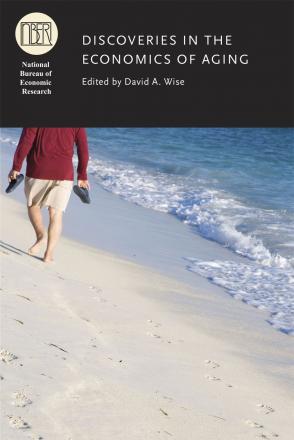Discoveries in the Economics of Aging

The oldest members of the baby boomer generation are now crossing the threshold of eligibility for Social Security and Medicare with extensive implications for these programs’ overall spending and fiscal sustainability. Yet the aging of the baby boomers is just one part of the rapidly changing landscape of aging in the United States and around the world.
The latest volume in the NBER’s Economics of Aging series, Discoveries in the Economics of Aging assembles a number of the most recent and insightful studies in this expanding field of study. One substantive focus of the volume is the well-documented relationship between health and financial well-being as people age. The contributors explore this issue from a variety of perspectives. The first part of the volume explores recent trends in health measurement, including the use of alternative measurement indices. Later contributions explore alternate determinants of health, including retirement, marital status, and cohabitation with family, and the potential for innovations, interventions, and public policy to improve health and financial well-being.


